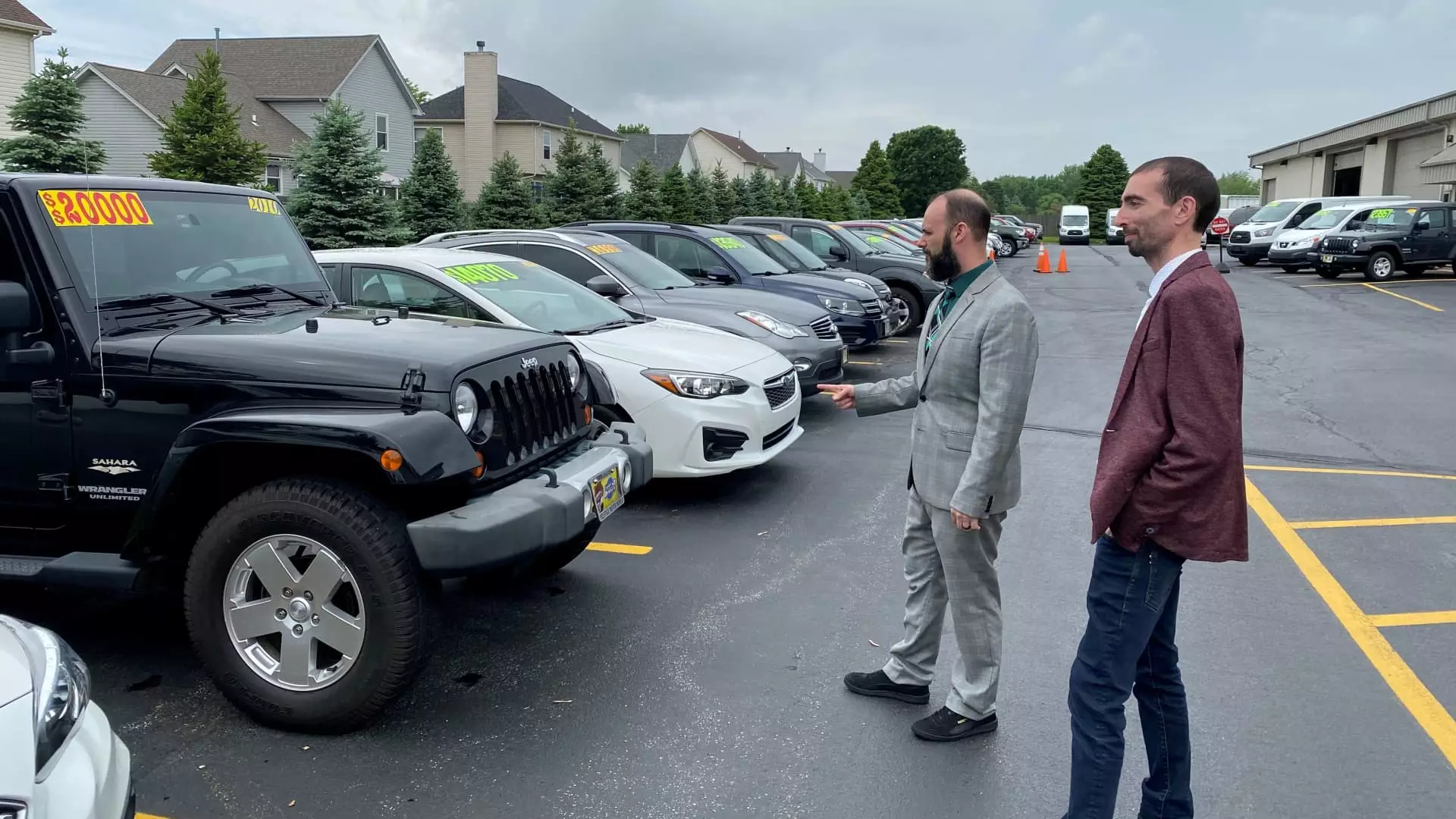As we head into 2025, the U.S. automotive industry finds itself at a crossroads, poised for potential changes that could redefine its trajectory. A recent report from Cox Automotive highlights a notable shift in sentiment among car dealers, driven by various factors including the political climate. Dealers are showing renewed optimism about the general auto market, but this optimism does not extend to electric vehicle (EV) sales. The political landscape, particularly with the return of a Trump administration, has dealers questioning the future of EV incentives and regulations that have been pivotal for the growing market segment.
Cox Automotive’s “Q4 2024 Dealer Sentiment Index” reveals that the market outlook among dealers has significantly improved, leaping to a score of 54 from 42 in the previous quarter. Historically, an index score above 50 suggests a more positive outlook among dealers regarding market conditions. This sentiment shift is particularly notable given last year’s dismal reading of 41, reflecting one of the lowest levels of confidence in recent years. Nevertheless, the current score still indicates that a majority of dealers perceive the market as weakened, underlining an interesting dichotomy: while there is hope for improvement, the foundation remains shaky.
What accounts for this shift? The resolution of the political uncertainty that previously clouded the industry seems to be a critical factor. With the presidential election concluded, dealers are now more optimistic about their futures, recognizing the potential for favorable policy adjustments and financial incentives that may benefit their operations.
Despite the overall positive sentiment surrounding the general auto market, issues surrounding electric vehicle sales cast a long shadow. The expectation of declining EV sales has become a significant concern, compounded by fears that upcoming federal policies may not support the growth of the EV sector. Many dealers now believe that the administration may cut funding for consumer incentives—specifically the $7,500 credit for EV purchases—thereby undermining the appeal of electric vehicles.
Cox Chief Economist Jonathan Smoke pointed out that the feedback from dealers highlights the importance of tax credits in both new and used vehicle markets. The potential erosion of these credits poses a risk to the already delicate balance of the EV market, suggesting that immediate action may be necessary to ensure continued growth and adoption of electric vehicles.
Financial Trends and Their Implications
Aside from political influences, financial considerations also play a critical role in shaping the outlook for car dealers. The current high prices of both new and used vehicles have buoyed the stock prices of several publicly traded auto dealers. Companies like AutoNation and Lithia Motors have reported significant share price increases of 15% to 22% over the year. However, this robust performance stands in contrast to the challenging environment faced by many dealerships, where the overall market index still reflects weakness.
The interplay between interest rates, vehicle pricing, and consumer behavior continues to construct a complex landscape for dealers. While lower interest rates are anticipated, potentially making vehicle purchases more accessible, the uncertainty surrounding EV policies complicates matters.
Looking Ahead: A Cautious Optimism
While dealers are navigating a landscape characterized by both hope and uncertainty, it’s essential to recognize the myriad variables at play. Political policy, economic conditions, and evolving consumer preferences must all be monitored as they will dictate the health of the automotive market moving forward.
As dealers express a newfound optimism about the general market, the potential decline in EV sales and the associated regulatory changes necessitate vigilance. The coming months will be pivotal in determining whether this optimistic outlook can be sustained or if it will be undermined by unfavorable developments. Dealerships must prepare for a future that might demand adaptability to ongoing changes, especially in the face of a rapidly evolving automotive landscape where electric vehicles are increasingly at the forefront of consumer consideration. The duality of dealer confidence and apprehension sets up a fascinating narrative to watch as we transition into 2025.

